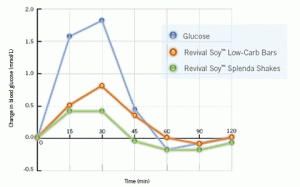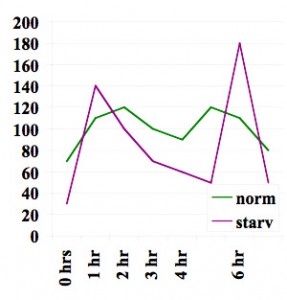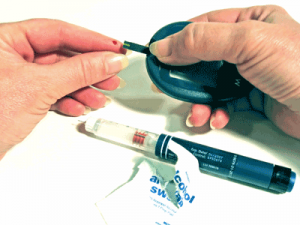What is an acceptable blood sugar level?

For diabetics keeping an acceptable blood sugar level is a daily chore and quite a hassle, so what is a acceptable blood sugar level? Diabetic are people who have to deal with the disease diabetes. Diabetes is where the body’s organ called the pancreas fails to produce the amount of insulin that is needed to keep the body healthy. Insulin is used for the changing of the body’s blood sugar into fuel that the cells can use. Without suffient amounts of insulin the blood sugar levels skyrocket which damages the body. The damage that is most often done is eye damage, heart damage, an increase in the chance of heart disease, nerve damage, kidney damage, and even kidney failure. These health effects are very serious and make diabetes a very serious disease. So keeping your sugar levels at a certain level is key.
So what is an acceptable blood sugar level? For a normal person it is 64.8 to 120.4 mg/dl, depending on the time elapsed since the last meal and size of the last meal. For diabetic the higher number can sometimes spike to levels of 200 mg/dl, these high levels damage the body quickly and should be dealt with soon. In order to manage your blood sugar you should talk to your doctor about getting a glucose meter to help keep an acceptable blood sugar level. A blood glucose meter is a small device that measures the amount of sugar in the blood. The unit uses small plastic strips to take in a small sample of blood. The blood is then analyzed and the results displayed on a small screen. Making this one of the most common and most mobile glucose machines, and a wonder at helping you maintain an acceptable blood sugar level.




